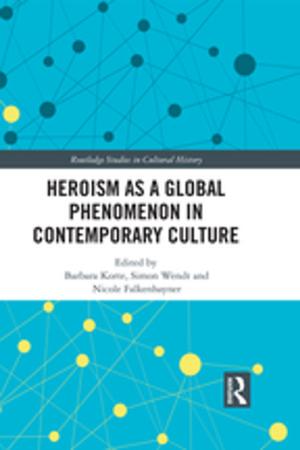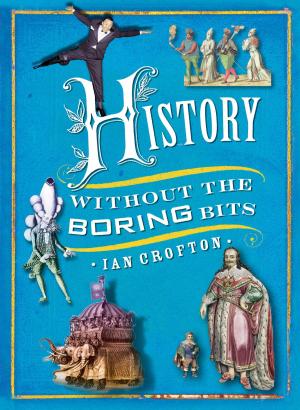The Achievements and the Days. Book VI. Is Ship Earth heading toward a 21th Century Darkness?
Nonfiction, Religion & Spirituality, Christianity, Church, Church & State, History, World History| Author: | Roland Maes | ISBN: | 9782953933253 |
| Publisher: | Roland Maes | Publication: | March 8, 2019 |
| Imprint: | Smashwords Edition | Language: | English |
| Author: | Roland Maes |
| ISBN: | 9782953933253 |
| Publisher: | Roland Maes |
| Publication: | March 8, 2019 |
| Imprint: | Smashwords Edition |
| Language: | English |
Book VI. Is Ship Earth heading toward a 21th Century Darkness? of the series “The Achievements and the Days” examines the direction taken by our elites in the management of the world.
Chapter 21 exposes that the evolution pressure of external events on modern humans was replaced by a cultural pressure consisting in a preferred choice of young female mates. The result of this neotination was a gracilization of the females and their reduction to an inferior status.
Chapter 22 analyses the passage of the civilized culture of sharing of our most primitive ancestors, in favor of a market economy allowed by the impoverishment of agriculturalists who suffered crop failures due to inclement conditions. Taxes and debt turned family members into commodities that could be rented or sold. The period 800 BC to 600 AD saw the rise of armies made up of trained professionals, which allowed the conquest of vast empires. Conquest generated chattel slavery and professional armies generated markets. The empires in China, India and Europe reached the limits of their expansion and entered into crisis. In India, Asoka re-founded his kingdom on Buddhism, in China, the Han emperor Wu-Ti adopted Confucianism, and in Europe the emperor Constantine turned to Christianity.
Chapter 23 describes the development of the notions of sin and evil in Egypt, the Near East, India and Greece. This notion found an expression in the Torah.
Chapter 24 argues that the Hebraic Bible was a myth elaborated to justify the territorial ambitions of the David dynasty. The Torah was completed after the deportation to Babylon, to explain the destruction of the Temple. The rebuilt Temple became the center of the identity of the Jews.
Chapter 25 describes the rise of Christianity. Throughout the first centuries following the teaching of Christ, we see a vigorous discussion centering essentially on the nature of Christ. The Roman Emperors consolidated the Trinity Creed in the 2d century.
Chapter 26 is concerned with Islam. The Koran is a construction elaborated after the first conquests to justify them. Mohamed did no more exist that Moses or Joshua. The rise of Islam was due to the geo-political situation existing at that moment in the Near East, when the region turned a free wheel with neither the Byzantines nor the Persians controlling it.
Chapter 27 exposes that the source of 21th century savagery is the secularization of the West. The secularized world is born in the violence of the European wars of religions at the scale of a continent. The Western civilization adopted a civilization of death, amplified by the French Revolution.
Chapter 28 describes the colonization of North America.
The USA was founded by dissident Churches but America “Americanized” the Churches, created an American Religion derived from Christianity and constituted a civil religion based on a common religiosity that is so con-stringent that it generated an independent neo-Christianity.
Chapter 29 describes the advent of Reason under the impulse of the Roman Catholic Faith. The Roman Catholic Church succeeded in an improvement of civilization because it abandoned Hebraic codes and concluded an alliance with the Greek philosophy. The alliance of catholic Christianity with the Greek forms of knowledge is profoundly anchored in history and cannot anymore be undone.
Chapter 30 concludes this book VI by stressing the need to firmly oppose fundamentalism and reactionary postures. The disastrous policy of allowing Muslim familial assembly has brought in our countries families that perpetuate the ancestral customs of their land of origin. The values of Islam slowly but surely and consistently permeate the European societies.
Globally, contemporary Western elites offer the most flagrant examples of abjection, corruption, imposture, bad conduct, theft, vulgarity. International relations more often appear to be plunder, brigandage, robbery and pillage than the pursuit of concord.
Book VI. Is Ship Earth heading toward a 21th Century Darkness? of the series “The Achievements and the Days” examines the direction taken by our elites in the management of the world.
Chapter 21 exposes that the evolution pressure of external events on modern humans was replaced by a cultural pressure consisting in a preferred choice of young female mates. The result of this neotination was a gracilization of the females and their reduction to an inferior status.
Chapter 22 analyses the passage of the civilized culture of sharing of our most primitive ancestors, in favor of a market economy allowed by the impoverishment of agriculturalists who suffered crop failures due to inclement conditions. Taxes and debt turned family members into commodities that could be rented or sold. The period 800 BC to 600 AD saw the rise of armies made up of trained professionals, which allowed the conquest of vast empires. Conquest generated chattel slavery and professional armies generated markets. The empires in China, India and Europe reached the limits of their expansion and entered into crisis. In India, Asoka re-founded his kingdom on Buddhism, in China, the Han emperor Wu-Ti adopted Confucianism, and in Europe the emperor Constantine turned to Christianity.
Chapter 23 describes the development of the notions of sin and evil in Egypt, the Near East, India and Greece. This notion found an expression in the Torah.
Chapter 24 argues that the Hebraic Bible was a myth elaborated to justify the territorial ambitions of the David dynasty. The Torah was completed after the deportation to Babylon, to explain the destruction of the Temple. The rebuilt Temple became the center of the identity of the Jews.
Chapter 25 describes the rise of Christianity. Throughout the first centuries following the teaching of Christ, we see a vigorous discussion centering essentially on the nature of Christ. The Roman Emperors consolidated the Trinity Creed in the 2d century.
Chapter 26 is concerned with Islam. The Koran is a construction elaborated after the first conquests to justify them. Mohamed did no more exist that Moses or Joshua. The rise of Islam was due to the geo-political situation existing at that moment in the Near East, when the region turned a free wheel with neither the Byzantines nor the Persians controlling it.
Chapter 27 exposes that the source of 21th century savagery is the secularization of the West. The secularized world is born in the violence of the European wars of religions at the scale of a continent. The Western civilization adopted a civilization of death, amplified by the French Revolution.
Chapter 28 describes the colonization of North America.
The USA was founded by dissident Churches but America “Americanized” the Churches, created an American Religion derived from Christianity and constituted a civil religion based on a common religiosity that is so con-stringent that it generated an independent neo-Christianity.
Chapter 29 describes the advent of Reason under the impulse of the Roman Catholic Faith. The Roman Catholic Church succeeded in an improvement of civilization because it abandoned Hebraic codes and concluded an alliance with the Greek philosophy. The alliance of catholic Christianity with the Greek forms of knowledge is profoundly anchored in history and cannot anymore be undone.
Chapter 30 concludes this book VI by stressing the need to firmly oppose fundamentalism and reactionary postures. The disastrous policy of allowing Muslim familial assembly has brought in our countries families that perpetuate the ancestral customs of their land of origin. The values of Islam slowly but surely and consistently permeate the European societies.
Globally, contemporary Western elites offer the most flagrant examples of abjection, corruption, imposture, bad conduct, theft, vulgarity. International relations more often appear to be plunder, brigandage, robbery and pillage than the pursuit of concord.















